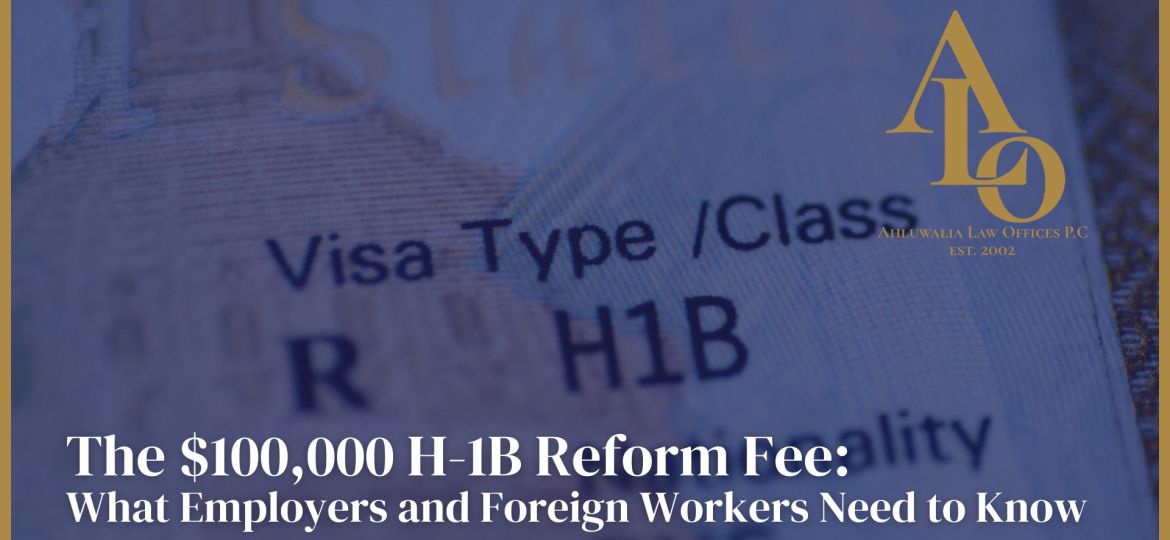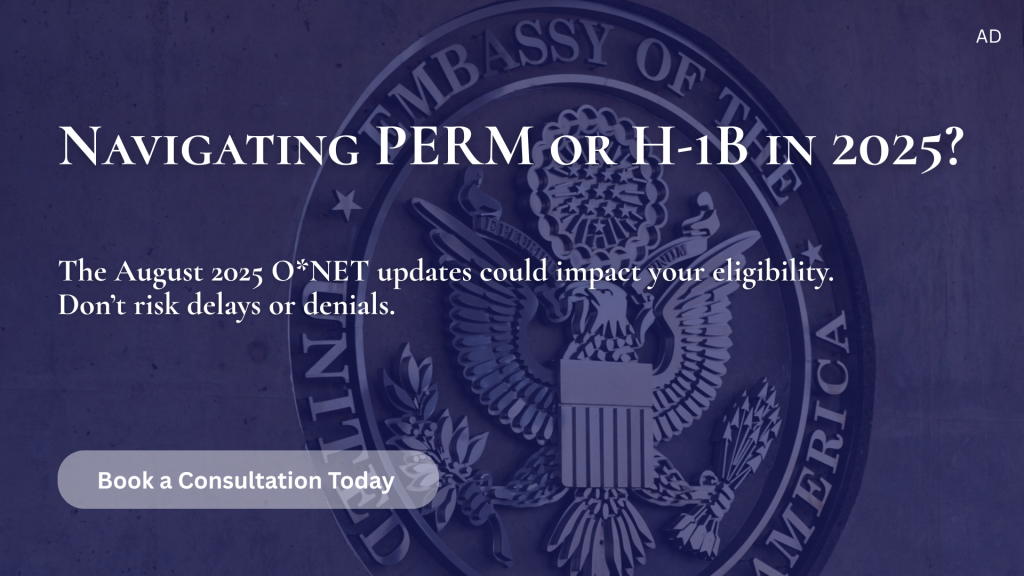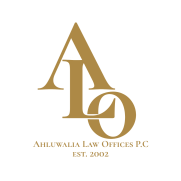
On September 19, 2025, the President signed a Proclamation on the Restriction on Entry of Certain Nonimmigrant Workers, introducing a major change for H-1B petitions filed on or after September 21, 2025.
Employers sponsoring foreign talent under the H-1B classification must now pay an additional $100,000 fee in certain situations.
Below, our attorneys answer the most pressing questions about this new rule.
What is the new $100,000 H-1B payment?
It is an additional payment—separate from existing USCIS filing fees—required for some H-1B petitions filed at or after 12:01 a.m. (EDT) on September 21, 2025.
Petitions subject to this requirement will not be accepted unless proof of the $100,000 payment (or an approved exception) is included at filing.
Who must pay the $100,000?
You must pay if:
- The beneficiary is outside the United States and does not hold a valid H-1B visa, and
- You are filing a new petition or one requesting consular notification, port-of-entry notification, or pre-flight inspection.
It may also apply if USCIS later determines that:
- The worker was not in valid nonimmigrant status, or
- The worker departed the United States before adjudication of a change-of-status, amendment, or extension request.
Who is exempt from this payment?
The $100,000 payment does not apply to:
- H-1B visas already issued and valid;
- Petitions filed before September 21, 2025;
- Change-of-status, amendment, or extension petitions approved for individuals lawfully present in the U.S.;
- Current H-1B visa holders who travel internationally and reenter the U.S. on valid status.
The guidance states that the payment does not apply to any petition:
“That is requesting an amendment, change of status, or extension of stay for an alien inside the United States where the alien is granted such amendment, change, or extension.”
This means:
F-1 students applying for H-1B change of status while remaining in the U.S. will not be required to pay the $100,000.
Employers filing H-1B amendments or extensions for employees already in valid status will also be exempt.
When must the payment be made?
Before filing the petition.
USCIS requires evidence that the payment has been scheduled or completed through pay.gov at the time of filing.
Failure to include proof of payment (or proof of exception) will result in denial of the petition
How do I make the $100,000 payment?
Use the official government portal:
https://www.pay.gov/public/form/start/1772005176
After submitting the payment, retain the confirmation receipt to include with your Form I-129 H-1B petition package.
What happens if I file without paying?
Under Section 1(c) of the Presidential Proclamation, USCIS will deny any H-1B petition that does not include proof of the $100,000 payment or a DHS-granted exception.
Can an employer request an exception to the payment?
Yes—but only in extraordinarily rare circumstances.
The Secretary of Homeland Security may grant an exception when:
- The worker’s presence is determined to be in the national interest;
- No qualified U.S. worker is available;
- The worker poses no security or welfare risk; and
- Requiring the payment would significantly undermine U.S. interests.
Requests must be emailed to [email protected] with detailed evidence supporting each factor.
Does the rule affect current H-1B visa holders?
No.
Current H-1B visa holders and approved beneficiaries may continue to work, travel, and extend their status without being subject to this new payment, provided their visa remains valid.
What should employers do now?
- Audit pending or upcoming filings to identify petitions that may be subject to the new rule.
- Schedule the $100,000 payment via pay.gov before filing.
- Retain receipts as evidence for USCIS and internal compliance.
- Consult immigration counsel to determine eligibility for an exception or to plan future filings strategically.
Why is this payment being introduced?
According to the White House, this step aims to reform the H-1B program by emphasizing national security, labor-market integrity, and protection of U.S. workers.
It also signals broader changes expected in future H-1B rulemaking.
Key Takeaway for Employers and Foreign Workers
The $100,000 H-1B payment represents a significant policy shift.
Employers should plan early, maintain meticulous documentation, and seek legal guidance before filing.
Ahluwalia Law Offices remains committed to helping both employers and foreign professionals stay compliant and secure lawful pathways for employment in the United States.


